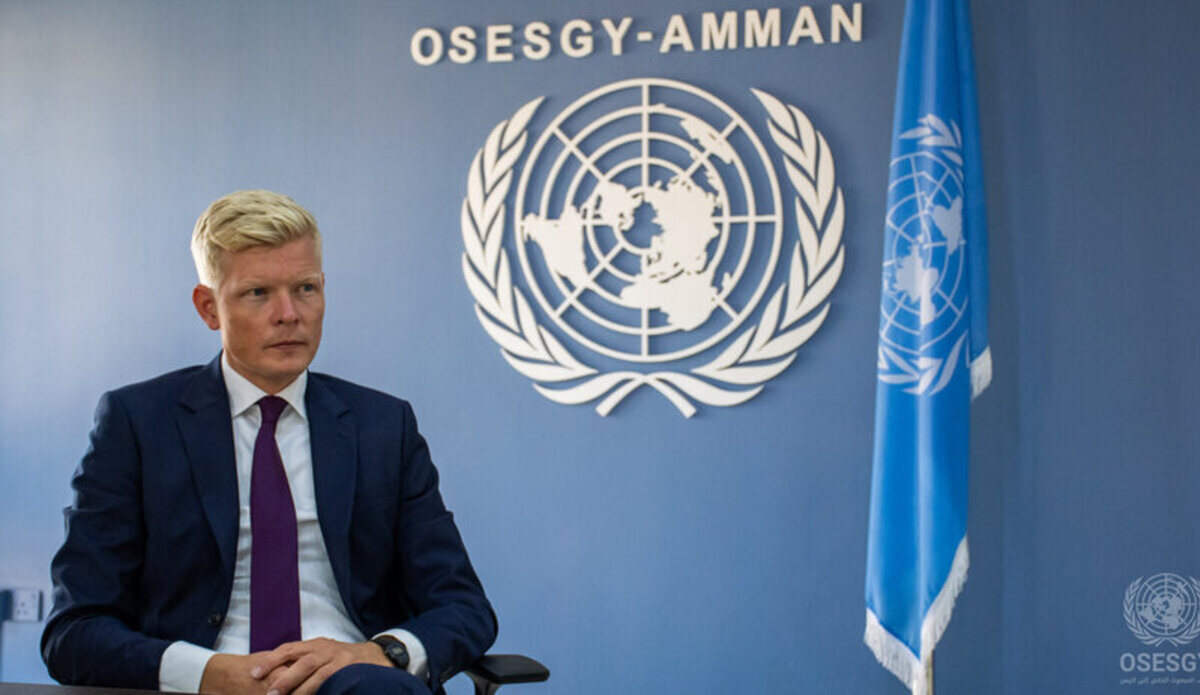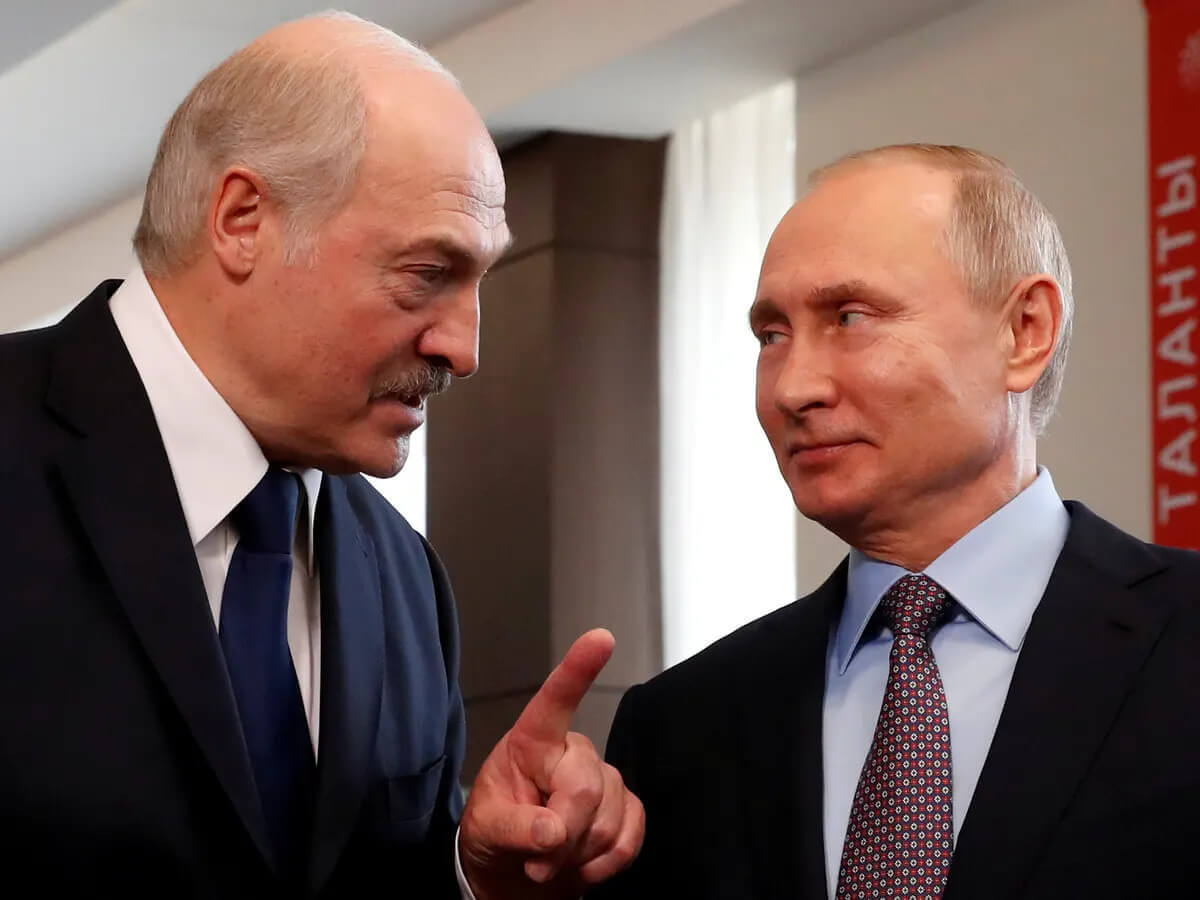South Asia
Pakistani Prime Minister Shehbaz Sharif called for a coordinated response between provincial governments and the National Disaster Management Authority to ensure the safety of citizens as torrential rains cause flooding in several parts of the country. Heavy rainfall has caused over 147 deaths in the past month. [Associated Press of Pakistan]
The speaker of the Sri Lankan parliament, Mahinda Yapa Abeywardena, confirmed that elected members will elect a new president on July 20 after President Gotabaya Rajapaksa’s resignation tomorrow. Parties have expressed a desire to replace the incumbent administration with an all-party government. [Colombo Page]
Central Asia and the Caucasus
Armenian Prime Minister Nikol Pashinyan on Monday held a phone conversation with Turkish President Recep Tayyip Erdoğan to discuss normalising ties. “The leaders emphasized the importance they attach to the bilateral normalisation process […] which will also contribute to the strengthening of peace and stability in the region,” Pashinyan’s office said. [Prime Minister of Armenia]
Protesters and eyewitnesses have rejected the Uzbek government’s claim that last week’s protests in Karakalpakstan were violent. Eyewitnesses told RFE/RL that the protesters did not damage anything. “People had only flags in their hands. They were just chanting, clapping, cheering.” In contrast, the government has claimed that the protests “cannot be qualified as peaceful demonstrations by citizens” because they included “mass pogroms and atrocities.” [RFE/RL]
East and Southeast Asia
In the wake of the passing of former Japanese Prime Minister (PM) Shinzo Abe, incumbent PM Fumio Kishida has urged his ruling Liberal Democratic Party to maintain unity and stability. “Because we’ve lost a great leader, undeniably we could be affected in many ways. Our party must unite as we face difficult issues,” Kishida said, adding, “We will inherit his [Shinzo Abe’s] will and tackle the issues he had to leave unachieved.” [Taipei Times]
In his farewell speech at the American Chamber of Commerce in Hong Kong, the United States’ consul general to Hong Kong, Hanscom Smith, said that being a “strong nation,” China should not be “terrified of dissenting opinions.” “An exchange of views is not collusion. Attending an event is not interference. A handshake is not ‘a black hand’,” Smith said. [Channel News Asia]
Europe
On Monday, Russian President Vladimir Putin spoke with his Belarusian counterpart Alexander Lukashenko to discuss joint steps regarding Lithuania’s “illegal” restrictions on the transit of goods from Russia to the Kaliningrad region. Putin also assured Lukashenko that Russia is “ready to fulfil its obligations” about continuing to supply Russian energy supplies to Europe. [President of Russia, TASS]
Germany and the Czech Republic signed an agreement to transition to low carbon energy in a joint effort to overcome shortages caused by diminishing Russian gas imports. Simultaneously, Russia’s Gazprom began annual maintenance on Nord Stream 1, leaving Germany worried that Russia will use this as a pretext to launch an extended shutdown. [Reuters]
British Prime Minister Boris Johnson’s replacement will be announced on September 5 following an internal vote in the Conservative Party that will decide which of the 11 candidates will lead the Tories as well as the nation. The first round of voting will be conducted on Wednesday and those that receive less than 30 votes will be eliminated from the race altogether. [The Independent]
Latin America and the Caribbean
Venezuelan Foreign Minister Carlos Faría met with the Director-General for the Americas of the European Foreign Action Service, Brian Glynn, on Monday wherein the duo reaffirmed to “strengthen cooperation in energy, environment and health” between the European Union and the South American nation. The Venezuelan leader also reiterated his country’s resolve to maintaining political dialogue with the regional bloc based on respect for sovereignty and self-determination. [Venezuelan Ministry of External Affairs]
On Monday, Argentina’s new Economy Minister, Silvina Batakis, reaffirmed the Fernández government’s commitment to adhere to the fiscal deficit target of 0.9% by 2024 as well as to honour the other goals agreed to under the $44 billion deal signed with the International Monetary Fund by her predecessor Martin Guzman. At a press conference, she stated that “it is an agreement we signed as a state and we must comply.” Guzman resigned last week following internal dissensions within the government, with Batakis’ appointment raising uncertainty with regard to the IMF deal. [AFP]

Middle East and North Africa (MENA)
Turkish President Recep Tayyip Erdoğan on Monday held phone calls with the Ukrainian and Russian presidents—Volodymyr Zelensky and Vladimir Putin—to discuss establishing safe corridors for transporting Ukrainian grain exports through the Black Sea. Around 20 million tonnes of Ukrainian grain shipments have been stuck at ports since Russia invaded Ukraine on February 24. [Reuters, Anadolu Agency]
United Nations special envoy for Yemen Hans Grundberg told the Security Council on Monday that he plans to ask all parties to the conflict to consider expanding the ongoing ceasefire for a longer period. “To date, the truce has been holding for over three months,” he told the Council. On April 2, the Houthis and the Yemeni government agreed to a two-month truce, which was extended for two more months in June. [Associated Press]
North America
United States (US) National Security Adviser Jake Sullivan revealed that Iran is planning to supply Russia with “up to several hundred Unmanned Aerial Vehicles (UAVs), including weapons-capable UAVs on an expedited timeline.” He also said that Tehran will also train Russian forces on how to use them and the training will begin later this month. This comes against the backdrop of US President Joe Biden commencing a Middle East tour to discuss a joint regional policy for Iran, and could further strain ties amid the failed discussions concerning Tehran’s nuclear programme. [The Washington Post]
The United States (US) is reportedly considering revoking the ban on the sales of offensive weapons to Saudi Arabia if Riyadh shows some progress towards ending the Yemen war. However, National Security Adviser Jake Sullivan has said, “Right now, there is nothing on the table to lift that ban,” adding that the US is focused on “strengthening and sustaining what is a fragile but real ceasefire” in Yemen. [Reuters]
Oceania
Australian Prime Minister (PM) Anthony Albanese has pledged that the country “will once again be a trusted global partner on climate action.” Speaking at the Sydney Energy Forum on Tuesday, the PM hailed the “new era” and said that it is time to take climate action. He added that the country could transform into a “superpower” of renewable energy and that the years ahead represent a “once-in-a-generation” opportunity. [The Straits Times]
Kiribati has withdrawn from the Pacific Island Forum (PIF) with immediate effect over claims that the grouping overlooked the island nation’s candidate for the position of secretary-general. In a letter to the group’s current secretary-general, Fiji’s Henry Puna, the country’s president, Taneti Maamau, argued that the forum is “reluctant” to address the concerns of Micronesian countries. [RNZ]
Sub-Saharan Africa
International medical humanitarian organisation Médecins Sans Frontières (MSF) has expressed concern over the surge in malnourished children in northwestern Nigeria and urged the United Nations, the World Food Programme, and the Nigerian government to “immediately scale up their funding and response support” to “avert a devastating nutrition crisis.” MSF noted that 50,000 children have been treated for acute malnutrition since January,, including 7,000 who required intensive hospital care. Increasing violence, with attacks by “bandits” periodically disrupting markets and trade, has caused severe food insecurity in the country. [All Africa]
Mali’s military junta on Monday arrested nearly 50 Ivorian soldiers deployed by United Nations (UN) peacekeeping mission MINUSMA. Malian government spokesperson Col. Abdoulaye Maiga alleged that they were “mercenaries” who were “illegally on the national territory of Mali.” UN mission spokesperson Olivier Salgado expressed concerns over the arrests, noting that the soldiers “have been deployed for several years in Mali as part of logistical support” and are working for a German company—Sahelian Aviation Service—contracted by the UN. [Associated Press]

